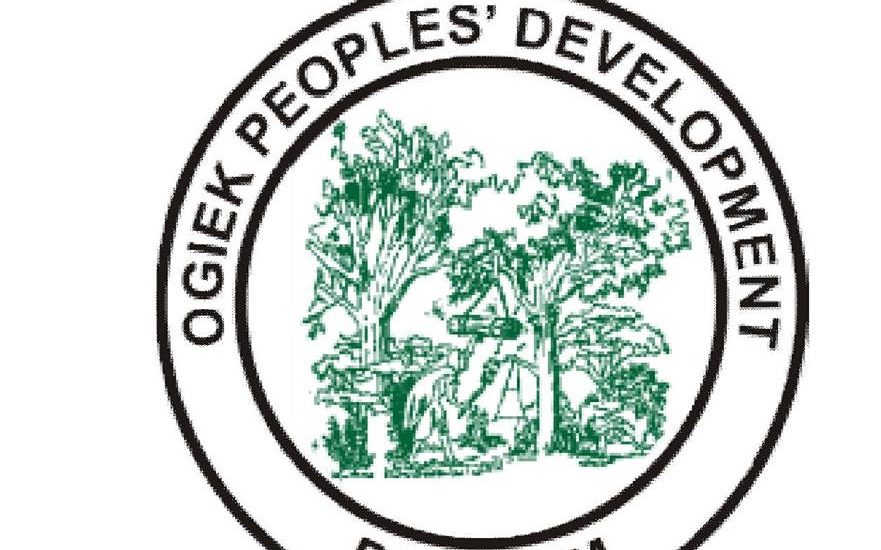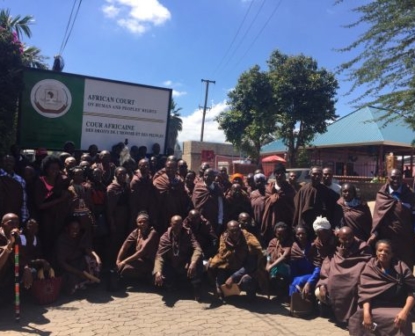Project
Guaranteeing Indigenous Peoples’ Rights in Kenya
-
Amount Funded
174,163 EUROProject Duration
01 Mar 2018 - 30 Apr 2019 -
-
Lead organisation
Partners
-
Ogiek Peoples Development Programme (OPDP) is a non-governmental organisation established in 2001 in Kenya, to champion the rights of the minority communities. The Organisational goal is to improve their socio-economic and political conditions through advocacy campaigns and inclusive development for every citizen to participate actively in national democratic processes. The organisational focuses on promoting and protecting recognition of indigenous peoples rights to end socio-economic and political marginalisation for overall sustainable development.
-
Organisation
Ogiek Peoples Development Programme (OPDP) is a non-governmental organisation established in 2001 in Kenya, to champion the rights of the minority communities. The Organisational goal is to improve their socio-economic and political conditions through advocacy campaigns and inclusive development for every citizen to participate actively in national democratic processes. The organisational focuses on promoting and protecting recognition of indigenous peoples rights to end socio-economic and political marginalisation for overall sustainable development.
-
Project
Following an eight-year legal battle, the judgement of the Africa Court for Human and People’s Rights finally provides a long awaited unique opportunity for enforcing the respect of the human rights of the Ogiek as well as other minority and indigenous peoples (MIPs) in Kenya. The decision helps in securing their access to productive resources (land and water mainly), as well as by fostering space for their political participation. The first ever indigenous community rights decision of 26 May 2017, the Court formally recognised the importance of respecting indigenous communities’ land rights in Africa by ruling that the Ogiek’s right to their ancestral lands, and linked cultural and religious rights among others, had been violated by the Government of Kenya as a result of decades of evictions in the name of conservation. As such, the ruling provides a unique opportunity for the Ogiek to secure the recognition of their rights violated until now and in partnership with other indigenous communities in Kenya and Africa to pursue changes in the law, policy, and practice governing the rights of indigenous peoples and natural resources, especially when linked to conservation building upon this historical precedent. In these favourable circumstances and within the first 12 months following the ruling, the project ensures the rapid and effective implementation of such an exceptional decision by collectively engaging and mobilising all key identified stakeholders, to (i) facilitate and prepare the ground for the Court’s forthcoming reparations order and (ii) to initiate the enforcement of the ruling, to monitor the first steps of its implementation and pave the way for it to benefit other Minority and Indigenous communities (MIPs) in Kenya and across Africa facing similar issues.
-
-
Following an eight-year legal battle, the judgement of the Africa Court for Human and People’s Rights finally provides a long awaited unique opportunity for enforcing the respect of the human rights of the Ogiek as well as other minority and indigenous peoples (MIPs) in Kenya. The decision helps in securing their access to productive resources (land and water mainly), as well as by fostering space for their political participation. The first ever indigenous community rights decision of 26 May 2017, the Court formally recognised the importance of respecting indigenous communities’ land rights in Africa by ruling that the Ogiek’s right to their ancestral lands, and linked cultural and religious rights among others, had been violated by the Government of Kenya as a result of decades of evictions in the name of conservation. As such, the ruling provides a unique opportunity for the Ogiek to secure the recognition of their rights violated until now and in partnership with other indigenous communities in Kenya and Africa to pursue changes in the law, policy, and practice governing the rights of indigenous peoples and natural resources, especially when linked to conservation building upon this historical precedent. In these favourable circumstances and within the first 12 months following the ruling, the project ensures the rapid and effective implementation of such an exceptional decision by collectively engaging and mobilising all key identified stakeholders, to (i) facilitate and prepare the ground for the Court’s forthcoming reparations order and (ii) to initiate the enforcement of the ruling, to monitor the first steps of its implementation and pave the way for it to benefit other Minority and Indigenous communities (MIPs) in Kenya and across Africa facing similar issues.
-
Grassroots networks advocate for land rights
The May 2017 ruling in favour of the Ogiek case resulted in the gazetting of the Task Force (TF) on the implementation influenced the Voice influencing project. The ruling set the standard for recognition and promotion of indigenous peoples’ rights in Africa with the Ogiek ancestral rights at the centre stage for their restitution. The Task Force was first gazetted in October 2017 for a period of 6 months (ending May 2018). Another Task Force was formed in October 2018 and had its term extended thrice and was expected to end and release its findings in early 2020. With this Task Force in place, the Ogiek community organised and mobilised to engage and influence their issues through the TF and pile pressure for speedy implementation of measures to guarantee them rights violated by the Government of Kenya. Members of the Ogiek linked up with allies, network members including fellow indigenous communities in Kenya and partners to present memoranda and statements to the TF further mounting pressure for the actual implementation of the ruling.
In August 2019, another Task force was put in place to remove people who had encroached Mau forest, leading to the deployment of security personnel to evict people residing in the Maasai Mau forest. Among others, this affected, 35 families of 211 Ogiek members who as the original occupants of the area felt violated given that the African Court ruling of 2017 recognised their existence in the Mau forest. OPDP raised this with the Ministry of Environment and Forestry, Lands as well as the Task force. The government responded that the Ogiek general issues be directed to the Task force to be addressed holistically along the land issues, a direction seen by the community as a move to delay their rights and ignore their sufferings.
In addition to mobilising humanitarian assistance for the affected families, OPDP carried out lobbying and advocacy related activities to harness wider support for successful enforcement, monitoring and replication of the ruling. This was done through sensitising the communities with the progress of the ruling implementation and prepared them to engage with the Taskforce. The grassroots forums were complimented by simplified briefings translated in Kiswahili, pocket size copies of the ruling. Additionally, talk shows in vernacular and Kiswahili were carried out on radio alongside news coverage in print and electronic media on local and international news channels. The project utilised the Minority and Indigenous Peoples (NIP) celebrations marking the 2nd and 3rd anniversary of the Ogiek case ruling to pass key messages to the community and remind the government on the need to respect court decisions and guarantee rights of the minority and indigenous people on land rights. As part of advocacy, the team produced and disseminated over 500 hard copies and streaming of video documentary of the pre ruling Ogiek history of struggle
The team attained participatory community enforcement and monitoring of the implementation of the ruling through the active action of community leaders and human right defenders in the virtual monitoring network. Through these efforts, there is more support and solidarity actions among the various indigenous communities in Kenya with increased learning from the Ogiek process for their pursuit of social justice. The Ogiek People’s Development Program (OPDP) understands that the delays in the engagement of the Taskforce has been a challenge and moving forward beyond the project, OPDP will continue to seek additional funds to continue engagement with the Taskforce and ensure that the judgement recommendations are implemented.
The established working relation among indigenous people has led to formation of a network known as the Hunter Gatherers Forum bringing together communities of Ogiek of Mau, Mt Elgon, Sengwer, Yaaku, Sanye of Marsabit and Aweer of Lamu. They are in the process of jointly documenting their issues for advocacy with the government. The intersectionality demonstrated by this networking is empowering since cross learning takes place.
-
News




